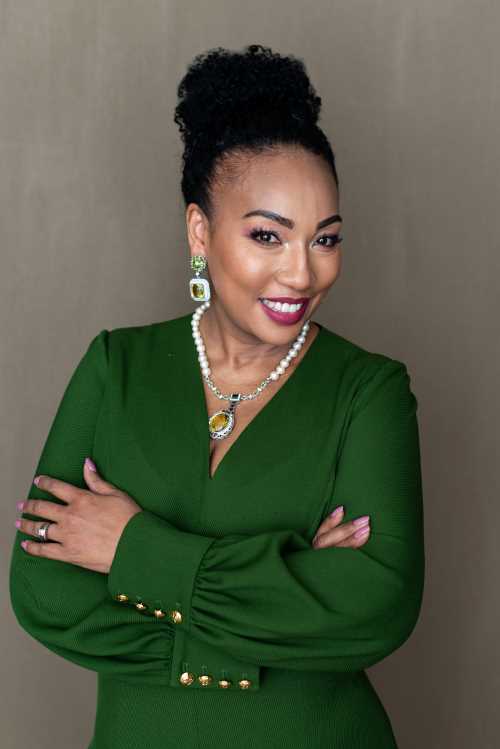Welcome to our Most Influential Women in iGaming rundown for 2021. Over the next three days we will reveal who has won their way through a public survey, shortlisting and final judging to land a place in the coveted top 10.
What shone through this year was the discernible uplift in the quality of the submissions, reflective of the huge achievements of this year’s nominees but also of the additional care and time taken by colleagues and friends to fill out the survey and build a case for their inclusion.
Also what became apparent during this year’s process was the hugely different backdrop against which these achievements took place compared to four years ago when we launched Most Influential. Roles dedicated to driving D&I initiatives within companies are now far more widespread, with the business case for more diverse workforces performing better than those with less diversity in their ranks now widely understood.
Such initiatives have also to some extent become swept up by the industry wide sustainability push of the last two years, in turn driven by the need to put player protection and the customer at the core of operations to ensure its longevity and viability as a sector, particularly in the more heavily regulated and mature European markets.
But as All-In Diversity founder Christina Thakor-Rankin argued in a precursor article for iGB, this hasn’t sidelined or diminished the importance of dedicated D&I initiatives for the sector we work in, far from it.
The challenge remains bigger than ever and campaigns that highlight those organisations and the women making their influence felt within them are needed more than ever, “so that the industry continues along the right path and so more efforts are made to make sure people from all sorts of backgrounds are given the opportunity to advance to such positions.”
This year’s candidates were nominated based on their influence on the industry, their company, and/or as a champion of diversity.
A number of nominees came under more than one category, and the judging panel took all of these factors into account when whittling the many entries down to the top 10 and the five runners-up.
Here are the first three profiles of our 10 Most Influential Women for 2021, listed in no particular order. The remainder will be published in Parts 2 and 3 over the coming days.
Sarah Blackburn
Director, GameOn Marketing

Sarah Blackburn first puts her inclusion in iGB’s Most Influential Women down to luck. She feels she feels lucky to have such a strong group of clients, a strong team, and to be considered.
But the fact GameOn has carved out a place as a serious competitor in a crowded field of specialist agencies is down to her leadership and standing in the industry rather than luck.
It’s down to being invested in what she does, Blackburn explains. “The biggest overriding secret is caring about what you do, caring about the industry, caring about the people you work with and bringing them on, caring about your clients and what they do, and wanting to help with their success. It’s about being and doing better really.”
With a career in the industry spanning more than 16 years, she admits the sector is a “very different place” from the one she joined. “There were definitely very different standards applied to the roles of women vs men, and this was a very tricky landscape to navigate, especially when I was in my twenties.”
She felt that to participate in the sector, have peers and make a different meant she had to start her own business. That business today aims to provide a platform for other women, Blackburn continues. Its account managers often run their own businesses alongside their work for GameOn.
“The team feel valued, and they give value in return, and I don’t want anyone to feel underestimated – they can achieve anything and my responsibility lies in making sure that can happen,” she says.
Confidence is key she adds. “So many women in C-level positions who you think would be so confident are scared of being judged, or saying the wrong thing, or just don’t get the opportunity to speak.”
Blackburn is especially keen to give women joining the industry now an opportunity to build their profiles. She wants to help women, and anyone from under-represented groups, to be supported to the point that they can speak to their peers, present to boards, even ask for a raise. “These people will be the key speakers at trade shows in five years’ time,” she points out.
Ultimately she’s simply flatted that her fellow industry professionals thought highly enough of her to put her name forward for iGB’s Most Influential Women. “I’m extremely proud to be recognised alongside such an esteemed group of successful women.”
Melanie Gross
Former VP of online casino & sportsbook, Caesars Interactive

Throughout her 18-year career in igaming, Melanie Gross has been a shining example of how to maximise the opportunities that you’re given.
Melanie worked her way up from being an engineer in 2003, and by 2005 she was responsible for the output of seven casinos across 150 countries.
“Having experience in multiple departments made me a better executive and business vertical leader, earning cross-departmental credibility and trust,” she says.
“By having an in-depth understanding of the product, I can focus on communicating the “what” and the “why” for a new business initiative, and give the development teams the authority to own the “how.”
While recognising the importance of representation within the industry, Melanie is a self-confessed introvert who’s had to navigate the social challenges which come with the job.
“I consider myself pretty introverted: networking and ‘working the room’ don’t come easily to me, and I’d much rather author a document or nerd out with some related analysis about it instead (laughs). So being part of a bigger audience gets me out of my comfort zone, while showing both men and women that I have earned the right to succeed here, and others like me have as well.”
In order to create a more balanced and diverse environment moving forward, Melanie believes that the industry needs to address a culture that rewards men for their potential, but women for their performance.
“We need more male and female sponsors of talented women,” she says. “Those sponsors are the ones who are in the ‘room where it happens’ (nod to Hamilton) – the C-Suite meetings, the long-term strategy discussions and so on. The sponsors need to advocate on behalf of those high potential women who aren’t in those meetings, and perhaps may not have the recognition to be at the forefront of consideration.”
Melanie adds that opportunities need to be better publicised to ensure that they’re available to everyone, alongside diversified selection committees.
“If a candidate checks nine out of 10 boxes, let’s not be so quick to reject them. Is the 10th box as important as the other nine, and if so a deal-breaker?
“As I think back to that internal leap I took all those years ago, I wonder what would have happened if that role weren’t visible to me… or if the hiring manager only focused on my past experience and didn’t see the potential I had. What I do know is that there’d be little chance I’d be receiving this award today.”
Charmaine Mabuza
Chief executive, Ithuba Holdings

South Africa’s Ithuba, led by CEO Charmaine Mabuza, is a trailblazing business. It was the first in the world to integrate with banks, and last year alone rolled out an online platform, and introduced a random number generator-powered draw system that has since become an industry standard.
And it was the first black female-owned and led operator when it won the tender to run the National Lottery in 2015. “By default I was immediately faced with the challenge of changing the mindset, this meant that awareness and education has been imperative in this male dominated industry,” Mabuza recalls.
She says her mother, also a business owner, was a key influence. “I learnt valuable lessons from her which I implement the running of Ithuba, learning that it is necessary to keep your eye on the goal and what you set out to achieve and to believe that you have every right to succeed.”
And Mabuza uses her success to raise others. She has launched a number of corporate social investment programmes, initiatives to support women, and offers bursary programmes to university students across South Africa, with the ultimate goal of eradicating poverty through education.
This is only the start, in her eyes. Ithuba’s executive team is 60% female, compared to an industry average of around 20%. As a black female leader, she continues, she has been subjected to racial and gender discrimination.
“This has strongly motivated me to pull women off the sidelines and ensure that they are fully integrated into decision-making positions.”
These goals can be fathered by legislative and policy change. By prioritising and empowering women, ensuring they are granted the same level of exposure as their male counterparts, gender parity in the boardroom can be achieved, and the gender pay gap narrowed, she says.
“Education and awareness are only some of the ways we are able to change the narrative and transform the societal barriers that certain industries are designated for certain genders only,” she continues. “The change in thinking will assist us to transform the current leadership structures within companies.
“As women, we want our voices to be heard and to be included holistically in the industry, it is thus up to us as a collective, is to start leading from the front to ensure that we change the dynamic in the boardroom and the workplace.
“When we support and stand with each other, we are unstoppable.”
Profiles by Robin Harrison and Nosa Omoigui
Original article: https://igamingbusiness.com/most-influential-women-2021-part-1/













